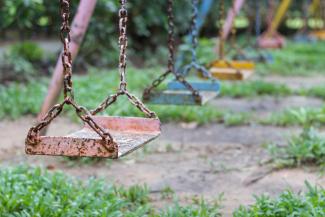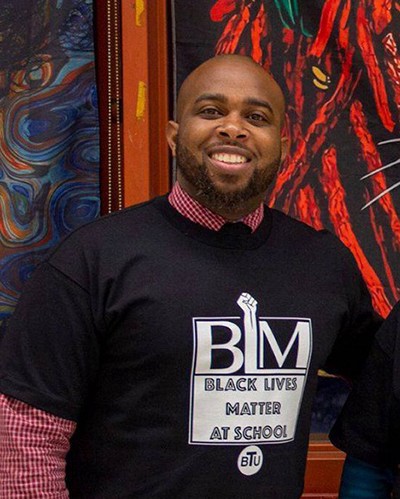
By Joel Richards
People keep asking why teachers are leaving.
Many of us are leaving teaching because the systemic oppression of Black people and children within the system has become a burden almost too heavy to bear.
For years, we have watched and persevered and guided so many of our students through the margins of society. We have helped them navigate poverty and its related family trauma — incarceration, undereducation and addiction. We’ve helped them overcome discrimination, low expectations, and a lack of recognition for their potential as resilient, creative, passionate, promising young people.
But things have just gotten worse. We are being crushed — by high gas prices, extraordinary rental rates, and our deferred dreams of homeownership. And we are dealing with our own trauma. For years the transfer of trauma from our students was at least bearable, but now when we cry for them, we are crying for ourselves too.
We are not leaving because the job is too hard or because the hours are too long. The impossible task of teaching complex subjects despite the rampant and immoral poverty we encounter among our students is a road we have traveled many times. We are leaving because the weight of the inequity has been compounded by the pandemic, and it’s all become too much to bear.
We are leaving because things should have gotten better but, instead they have gotten worse.
The system will kneel on your neck, then kneel in a moment of silence.
We never asked for gestures or words. Give us HVAC, give us neighborhood schools, give us shorter days and after-school programs.
In the Christian tradition, there is a proverb: “For where your treasure is, there your heart will be also.” Some people translate that to mean: You can tell what a city values by its budget.
But this isn’t entirely true. Budgets are like a rain cloud that never finds its way to the thirsty. You can tell what a city values by the condition of its buildings. Do poor communities have clean and well-designed schools?
We can tell how our students are valued by the rusty play structures, cracked blacktop, and mulch-covered playgrounds filled with rat feces. We know what administrators and local governments think our students are worth by how long the lines are at food banks, and how many makeshift memorials to the dead are in their neighborhoods. When they light candles for the dead, they light them for the living too.
We are leaving:
- Because dog parks have clean drinking water fountains, and we do not.
- Because we have seen the hurt children become broken adults.
- Because we can be sexually harassed or threatened and then be mocked for being scared or uncomfortable.
- Because it hurts to give up on a child the system has failed.
- Because of the rat feces.
- Because we can be physically assaulted with no consequences.
- Because nurses leave at noon, and students vomit and get fevers at 12:30 p.m.
- Because it is hard to watch an autistic child never get support and become depressed and suicidal.
- Because we advocate and get ignored.
Our Hope
We will never stop advocating because every teacher — those who stay and those who leave — has the same dreams and hopes. We want a world where our students can walk to schools in their neighborhoods, arrive at well-maintained buildings that are filled with smiling adults, where the food they eat represents their cultures, and the books they read empower them to fulfill their dreams.
We will never stop advocating or hoping because without that hope all we would have is our tears.

Joel Richards is a technology teacher at Blackstone Elementary School in Boston and a co-chair of the Boston Teachers Union Black Lives Matter at School committee. He is choosing hope. He is choosing to stay. You can follow Joel on Twitter at @MrRichardsBos.
